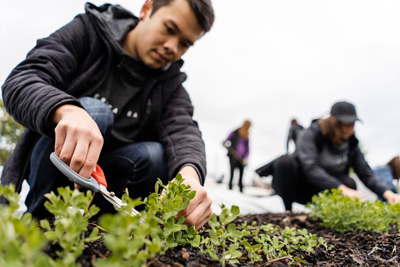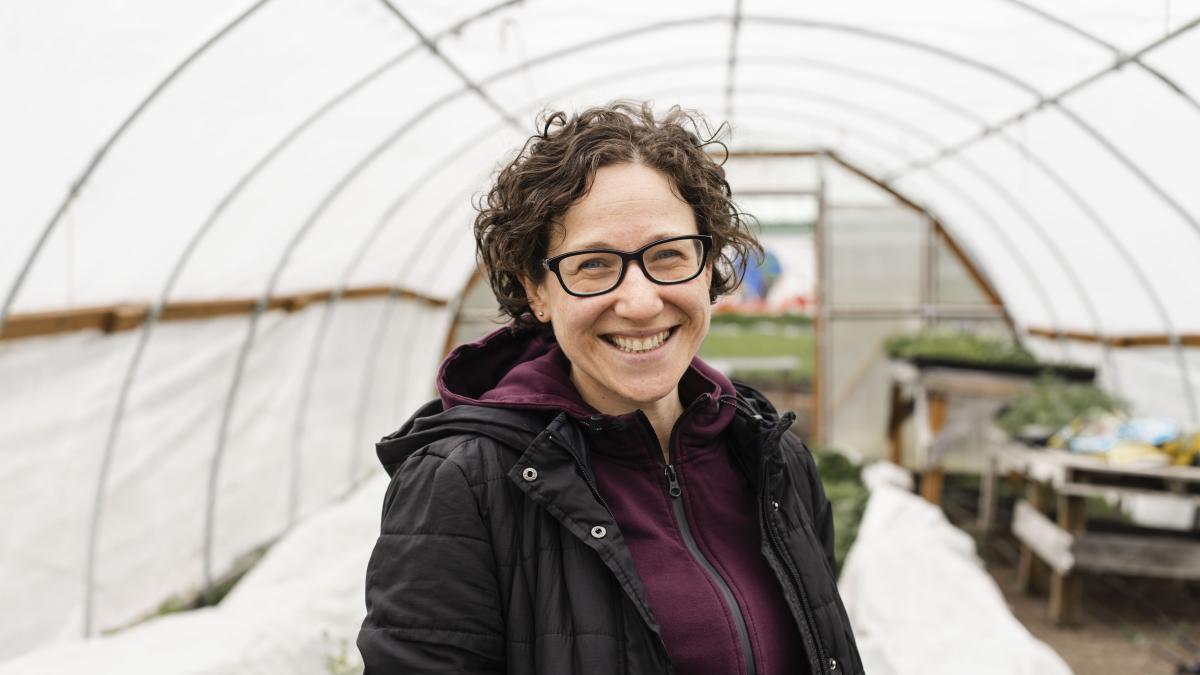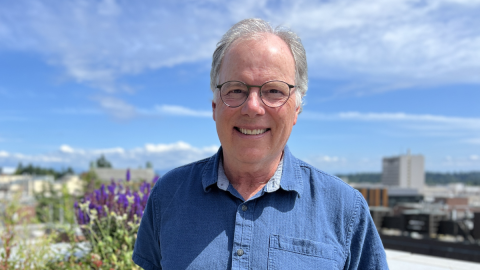Ensuring that all people have access to healthy food is a challenge in the best of times, but it has become even more daunting during the current pandemic.
Yona Sipos, a lecturer in the UW Department of Environmental & Occupational Health Sciences and core faculty in the Nutritional Sciences Program, recently spoke with Aspen Avery of the UW’s “The Whole U” about food systems and sustainable food choices in this time. This interview is adapted from their full conversation, available here.
What are some nutrition and food system issues that we may face because of the COVID-19 pandemic?
The USDA is reassuring Americans that there are “no nationwide shortages of food, although in some cases the inventory of certain foods at your grocery store might be temporarily low before stores can restock.”
While our supply chains remain strong, nutrition and food insecurity are already rising. Prior to the pandemic, during a time of great economic growth, the US population already experienced a rate of approximately 11% food insecurity.
As with the great recession in 2008, we can anticipate seeing this number increase as more food service sectors face layoffs and increasingly limited economic options. Increasing food insecurity is sure to impact children, seniors and other vulnerable populations, including university students.
Here in Seattle, our farmers markets are currently closed, and school meals and food businesses have much reduced operations, if any. These closures limit access to nutrient-dense, locally produced foods and also create economic peril for farmers and food service workers who’ve just lost their markets and jobs. The whole food system is intimately connected.
What can people do right now?
• Don’t panic purchase; do plan! Consider a more limited plan for accessing food, whether from grocery stores, food banks or both. Give yourself extra time to manage food acquisition. Be gentle on yourself and others. Accept less diversity in your diet.
• Plant seeds if possible. Greens, especially!

• Consider signing up for community-supported agriculture (CSA) or other ways to purchase directly from farmers. Some farms offer sliding-scale fees, and many farmers may now have unexpected produce to sell. Our very own UW Farm has a CSA and also donates fresh produce to the UW Food Pantry; these are important resources for our campus community.
• Donate money to food banks if you have the means. Food banks will experience greater demand, and any support at this point will help with future planning and preparation.
• This updated list from the Seattle Times details food, mental health and more resources to support the community.
What are some simple ways we can improve our nutritional sustainability when grocery shopping?
Choose nutrient-dense produce with a longer shelf life when it is available—for example, apples, carrots, potatoes, cauliflower and kale. Choose whole grains and foods with limited or no added sugar. There is a chance you will have more time on your hands while homebound. Consider trying to cook some basics: rice, beans (dried if possible) and eggs. See where you can add in veggies, whether they are fresh, frozen, canned or dried.
What’s something about nutrition and sustainability that you wish more people knew?
Our food system relies on diverse crops, genetics and ecosystem materials and processes in addition to a robust labor force. The way our food is produced and moves through the supply chain will impact individual to population health, including farmers and farmworkers, as well as the health of our planet.
How your food is produced and processed is often even more important to population and planetary health outcomes than which foods you eat. Meat and dairy that is intensively reared results in all sorts of negative ecological impacts, and so do monocrops of soy and corn. There is not a single diet that works for all!




